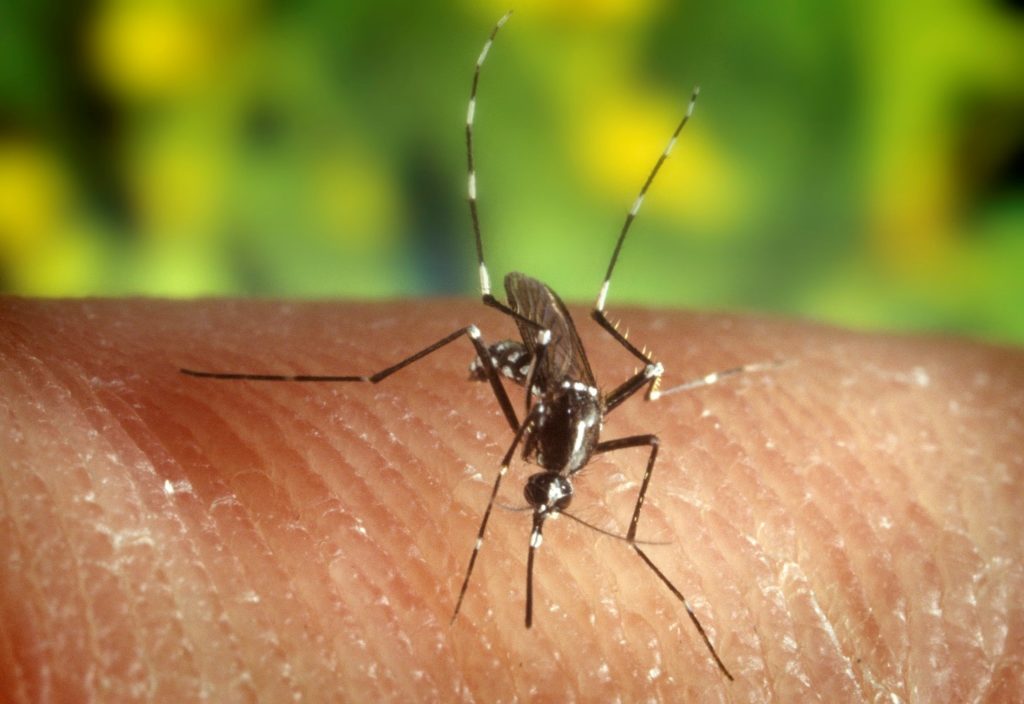India and 10 other countries in sub-Saharan Africa accounted for around 70 percent of estimated malaria cases (151 million) and deaths (274,000) globally last year. However, India was the only one of those 11 to show progress in reducing the disease within its borders.

The World Health Organization’s World Malaria Report 2018 indicated a 24% decrease in the number of malaria cases in India between 2016 and 2017. That was enough of a decrease to remove India from the list of the Top Three countries impacted by malaria.
There were more than 219 million cases of malaria report in a total of 90 countries in 2017. About 435,000 people died from malaria, so there is still a lot of work to be done to eradicate the disease.
Progress is evidenced by several new advances that, when more widely adopted, should generate the greatest decline in malaria ever.
Comprehensive Case Management Program
The 24% decline in malaria cases in India was due, at least in part, to an experimental project implemented across 22 districts of Odisha. The Comprehensive Case Management Program (CCMP) was a collaboration between the Indian Council of Medical Research-National Institute of Malaria Research and the National Vector-Borne Disease Control Program. The project was funded by the Medicines for Malaria Venture NGO based in Geneva, Switzerland.
The CCMP program follows ‘Test-Treat-Track’ strategy that emphasizes broader access to diagnosis and treatment built upon the improved quality of services and surveillance.
One expert observer noted that “CCMP is a sustainable model for improving access to malaria control tools in hard-to-reach areas. Other states can take a cue from this and intensify efforts towards malaria elimination.”
If what has been accomplished in Odisha can be replicated throughout India, it can – and should – surely be successfully administered around the globe.
University of Florida Saliva-based Detection
Yes, the same people who brought us Gatorade have developed a surveillance test that gets ahead of the disease.
The blood-sampling process that is currently used is only moderately reliable. Even in best-case scenarios, blood test results can take hours or even days. The saliva test results are available within minutes.
The Saliva-Based Malaria Asymptomatic and Asexual Rapid Test detects the presence of a protein that causes malaria.
The current blood test model requires the presence of at least 10 parasites in the sampling and requires specialized training to administer. By contrast, the saliva test is non-invasive, requires no specialized training, and is able to detect the presence of malaria with only 0.7 parasitic presence.
The importance of this U of F advance is that it detects malaria much more accurately and much earlier than the blood test. Early detection means that persons carrying the parasite who exhibit no symptoms with the blood test can be cured before they actually get malaria. Left undetected, these people can literally become reservoirs that feed the mosquitoes and transmit the disease.
“Malaria is like a big iceberg that we’ve always chipped away at on top, above the water line. But it’s the bottom of the iceberg, this reservoir for transmission, that we don’t understand because it’s a population that, until now, we could not see. This test takes us below that water line, so we can see how big the reservoir is.”
The diagnostic test detects female parasites circulating in an infected human who is asymptomatic but is carrying the parasite and likely to come down with malaria within a week.
The saliva test has been in development for more than five years and must be approved for use by the World Health Organization for distribution. That approval is expected sometime within 2020.
To read more news on Malaria on Missions Box, go here.
Sources:
- The Hindu, Malaria cases drop significantly; deaths down to 54
- The Telegraph, First malaria saliva test could help eliminate the disease through early diagnosis
- Science Translational Medicine, A saliva-based rapid test to quantify the infectious subclinical malaria parasite reservoir
- The Wire, Replicate Odisha’s Malaria Tackling Project Across India: Experts
- Futurity, Spit Test Detects Malaria Before Symptoms Begin
- University of Florida News, New saliva-based test detects malaria before symptoms appear
- Hindustan Times, Sharp decline in malaria in India as cases rise globally: WHO report
- India Today, India is no longer among the top three countries with highest malaria burden: WHO report
Sources:
- James Gathany, CDC [Public domain], via Wikimedia Commons




